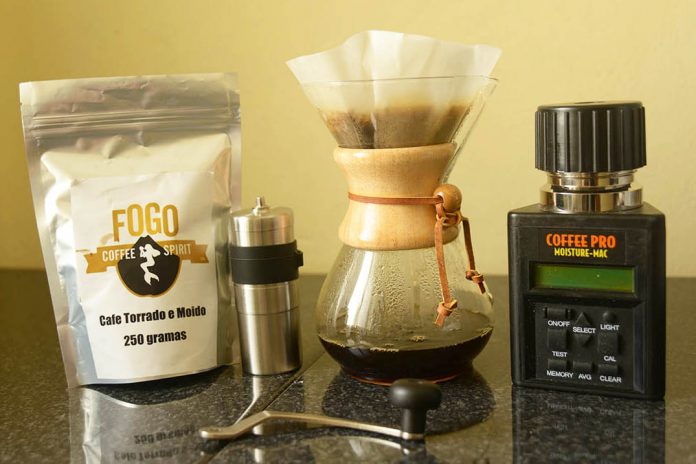Cape Verde offers what arguably is some of the tastiest coffee around, but few coffee aficionados outside of that West African nation are able to enjoy a cup of the authentic local brew.
That will soon change, now that coffee from Cape Verde will be heading to the United States via Starbucks Coffee Co., the world’s largest coffeehouse chain. This follows a purchase of 6,960 kg from local company Fogo Coffee Spirit, named after the island in the Cape Verde archipelago where it is produced.
The sale is a milestone for Fogo Spirit, marking the first time the company has placed its products in the U.S. market.
Fogo Coffee Spirit was established in 2012 and is majority owned by Netherlands-based Trabocca, which also markets and sells organic specialty coffees sourced worldwide, including elsewhere in Africa, South America and Asia. Trabocca boasts that it purchases coffee directly from coffee producers, estates, and cooperatives, paying local farmers and staff above market price in order to “promote sustainability and social welfare.”
“We have been the long-time preferred suppliers to Starbucks of Ethiopian coffees. When we showed them our first results of our four-year [Cape Verde] project they were very excited about the quality and rare flavor profile. The combination of limited supply and this exotic innovative project made it extra interesting for their Program, we think,” Trabocca founder Menno Simons told AfricaStrictlyBusiness.com in an exclusive interview.
Fogo Coffee Spirit will be sold in Starbucks’ High-end Program. Even with the program’s limited reach, this could be a great deal for the Cape Verde brand. According to the most recent market figures, American consumers spend on average $21.32 on coffee weekly.
In a recent report, the International Coffee Council, which is based in London, describes coffee as an important commodity in many African countries both in terms of export earnings and generating income for smallholder farmers. In Africa, the report said, “the coffee industry functions in three key economic sectors. In the primary sector, the industry generates direct income, employment and output. In the secondary sector coffee is used as an input in the processing industry (roasting). The tertiary sector covers domestic wholesale and retail marketing, consumption and exports. These activities add to the value chain and contribute to the national economic growth for a number of African countries.”
Once the Cape Verde government understood the branding and earning potential of coffee, it approved a number of related production projects. But coffee production on Fogo island fell sharply as farmers turned to other crops. In June 2011, Trabocca received a grant from the Dutch government to revive Fogo coffee and upgrade the quality.
“We are investing a lot of money to start this project. Nobody knows Fogo as a specialty coffee, so it requires a lot of efforts to introduce and sell it. Most roasters only try a few bags at first. A good buyer like Starbucks pays a solid price and can take more volume. The marketing effect is great for the future of our project. So we are very happy with their support,” says Simons.
It may be difficult for Fogo Spirit to compete with coffees from Angola, Burundi, Cameroon, Côte d’Ivoire (where 45 percent of the population is employed in coffee production), Democratic Republic of Congo, Ethiopia, Kenya, Madagascar, Tanzania and Uganda dominating Africa’s coffee exports, but Simons insists it will find a solid niche. Asked what makes Fogo coffee unique, he is quick to respond.
“My first reaction is, it has a very thick body and is extremely sweet. Some tropical fruit and banana flavors appear. I think the low yield due to the microclimate and circumstances have shaped this varietal to be concentrated in the flavor,” he asserts. “The varietal has been isolated on the island for over 300 years, so it is very pure still. There are many island ‘marketing coffees’ [outfits], but really good quality is hard to find. Combined with the limited volume and the fact we have a great impact on the community and local coffee industry it makes it a very interesting coffee to offer as a roaster.”
Simons concedes that the Starbucks deal will require Fogo Spirit to make changes to meet the new demand, but insists that the company is ready to do so. “We are starting a small farm as an experiment to see if we can create even better coffee with organic composting and small irrigations,” he says.













